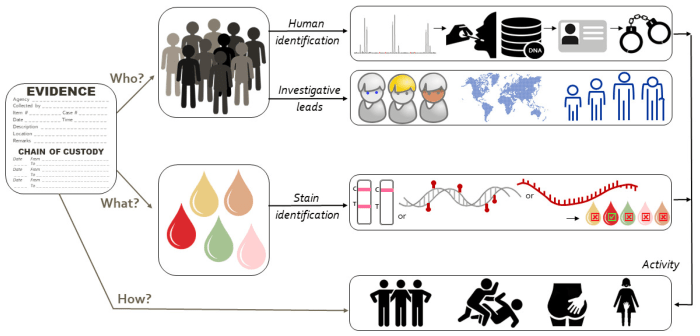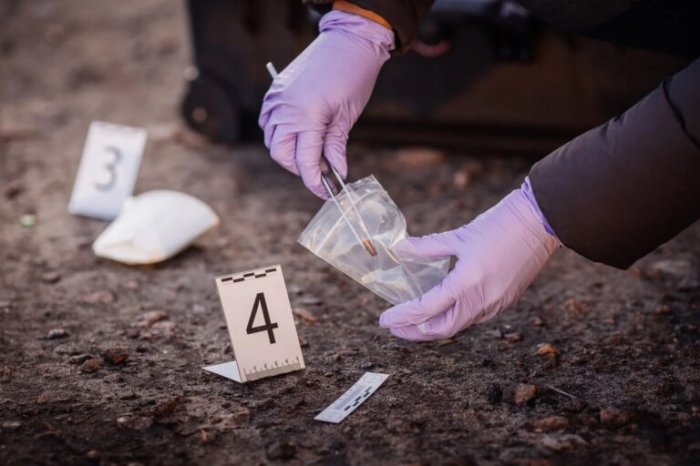As what is the focus of criminalistics takes center stage, this opening passage beckons readers into a world crafted with good knowledge, ensuring a reading experience that is both absorbing and distinctly original.
Criminalistics, a scientific discipline that plays a pivotal role in the criminal justice system, has evolved over time, employing a diverse range of methods and techniques to analyze evidence and aid in solving crimes. This comprehensive exploration delves into the fascinating realm of criminalistics, shedding light on its history, applications, and the career opportunities it offers.
1. Introduction

Criminalistics is the application of scientific methods to legal problems. It encompasses the study of crime scenes, the analysis of physical evidence, and the identification of suspects. Criminalistics has played a vital role in the development of modern law enforcement and has helped to solve countless crimes.
2. Methods and Techniques: What Is The Focus Of Criminalistics

Criminalists use a variety of methods and techniques to analyze evidence. These methods include:
- Forensic microscopy:The use of microscopes to examine evidence, such as hair, fibers, and fingerprints.
- Forensic chemistry:The use of chemical analysis to identify and quantify substances, such as drugs, poisons, and explosives.
- Forensic biology:The use of biological techniques to identify and analyze DNA, blood, and other biological materials.
- Forensic pathology:The study of the cause and manner of death.
- Forensic psychology:The study of the psychological aspects of crime, such as criminal profiling and witness testimony.
3. Subfields of Criminalistics
Criminalistics is a broad field that encompasses a number of subfields, including:
- Forensic science:The application of scientific methods to the investigation of crimes.
- Forensic pathology:The study of the cause and manner of death.
- Forensic psychology:The study of the psychological aspects of crime.
- Forensic anthropology:The study of human remains, including the identification of skeletal remains and the reconstruction of facial features.
- Forensic odontology:The study of teeth and jaws, including the identification of human remains and the analysis of bite marks.
4. Applications of Criminalistics

Criminalistics is used in a variety of settings, including:
- Law enforcement:Criminalists assist law enforcement officers in the investigation of crimes by providing scientific analysis of evidence.
- Forensics:Criminalists provide expert testimony in court cases, helping to explain the scientific evidence to judges and juries.
- Other fields:Criminalistics is also used in a variety of other fields, such as insurance fraud investigation, product liability litigation, and environmental protection.
5. Career Opportunities in Criminalistics

There are a variety of career opportunities available in criminalistics. These careers include:
- Forensic scientist:A forensic scientist analyzes evidence in a crime laboratory.
- Forensic pathologist:A forensic pathologist performs autopsies and examines human remains.
- Forensic psychologist:A forensic psychologist studies the psychological aspects of crime.
- Forensic anthropologist:A forensic anthropologist studies human remains, including the identification of skeletal remains and the reconstruction of facial features.
- Forensic odontologist:A forensic odontologist studies teeth and jaws, including the identification of human remains and the analysis of bite marks.
Q&A
What are the primary methods used in criminalistics?
Criminalistics employs a wide range of methods, including DNA analysis, fingerprint identification, ballistics testing, and trace evidence examination, to analyze evidence and reconstruct crime scenes.
How does criminalistics contribute to law enforcement?
Criminalistics provides crucial evidence and insights to law enforcement agencies, assisting in identifying suspects, linking them to crime scenes, and reconstructing the sequence of events.
What career opportunities are available in criminalistics?
Criminalistics offers a diverse range of career opportunities, including forensic scientists, crime scene investigators, forensic pathologists, and forensic psychologists, each requiring specialized education and training.
